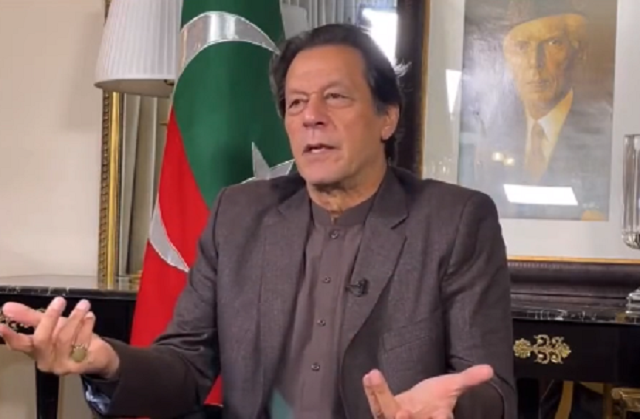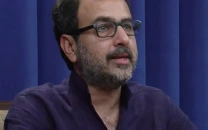Parliamentary politics: A moment of reckoning for PTI
Party sees itself at receiving end as curtain slowly falls on govt

Renowned political experts have said that the Pakistan Tehreek-e-Insaf’s (PTI) desire to return to the National Assembly was reflective of its "flawed decision-making" and noted that the party did not think through the political implications of its decision to quit the House en masse in April last year.
The experts said that abandoning the assembly right after the successful execution of the vote of no-confidence against the then-premier Imran Khan indicates that the party’s decision-making process was flawed, and immaturity and stubbornness put the whole system at risk.
“The PTI’s desire to go back to the assembly indicates that the party leadership did not think through at the time of resigning en masse from the assembly,” Pakistan Institute of Legislative Development and Transparency President Ahmed Bilal Mehboob said.
The PILDAT chief said that the PTI envisaged in April last year that en masse resignation will lead to a crisis and the federal government would be forced to announce elections but that turned out to be an incorrect decision.
Now, Mehboob said, the PTI chief was thinking to go back to parliament as the interim government is formed through a consensus of the government and opposition before the elections and the PTI has realised that it will not have a say in the formation of the caretaker set-up and the same would be proved to be detrimental for the party in the next general elections.
Mehboob, being the political and constitutional expert, said that the PTI has realised that it should try to get back all the key positions, including the office of the opposition leader and the chairmanship of the Public Accounts Committee (PAC), and bring itself into a position where it will have a say in the making of the caretaker set-up.
Otherwise, he said, the realisation is that everything will be lost.
By abandoning NA, Mehboob said, PTI not only lost a forum where it had the opportunity to express its opinion and convey its stance to the masses but left the field open for the government. At the time of its resignation from the assembly, he said, all these arguments were raised but rejected, saying “immaturity and stubbornness” prevailed over the opinion of the experienced party leaders.
“This proves that PTI’s decision-making is flawed and deficient,” Mehboob said.
Though the issue of the appointment of the National Accountability Bureau (NAB)’s chairman has suddenly surfaced, Mehboob said, PTI has felt that it would not have a say in the appointment of the new accountability czar unless it goes back to the assembly, especially when Imran in being summoned by NAB.
Earlier, the PTI kept saying that it would not go back to the assembly but now the party even challenged the NA speaker’s decision of accepting PTI MNAs’ resignations before the Lahore High Court (LHC) so that they could go back to the assembly and have a say in the caretaker setup.
Eminent scholar Professor Dr Hassan Askari said that one reason for PTI to go back to the assembly is that it will face severe loss as the incumbent leader of the opposition in the NA, Raja Riaz, happens to be a disgruntled PTI member and might contest the next elections on a Pakistan Muslim League-Nawaz (PML-N) ticket.
“The PTI wants to take back the office of the opposition leader from Raja Riaz,” the professor said, saying the PTI has been trying to return to parliament in an effort to take back all key positions meant for a major opposition party. He said that the party now wants to have a say in the NAB chief’s appointment too.
“The PTI’s decision to resign en masse shows that there was no long-term thinking,” the professor said, adding that “it was a knee-jerk reaction; political implications were not carefully gauged back then; and the focus was on only on the short-term objectives”.
Reiterating that things were not considered carefully, Professor Askari said that “the whole system was put at risk for immediate political gains. He feared that system cannot survive for long this way, saying currently the country did not have a normal functioning system. It was advantageous for PTI to stay in the assembly, he said, but the notion was rejected at that time.
Professor Askari blamed all the political parties for focusing on achieving short-term goals only, saying they never think beyond tactical gains. Contrary to its claims, he said, the incumbent government has failed to revive the economy as the whole focus was on arresting PTI chief Imran and other opponents.
To a question about elections bringing stability in the country, Professor Askari said that elections provide a margin to bring stability, but it depends on the upcoming government if it can do something in a year or so or not otherwise things would go back to square one.
“Elections give an advantage, but it is up to the government if it can capitalise on the situation or not,” the professor said.



















COMMENTS
Comments are moderated and generally will be posted if they are on-topic and not abusive.
For more information, please see our Comments FAQ